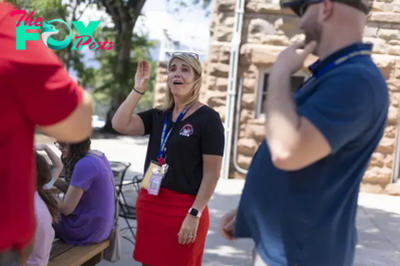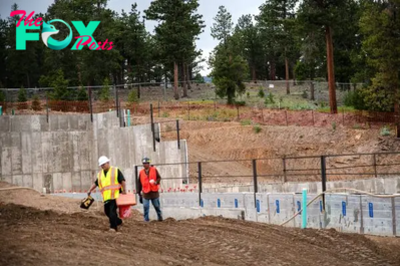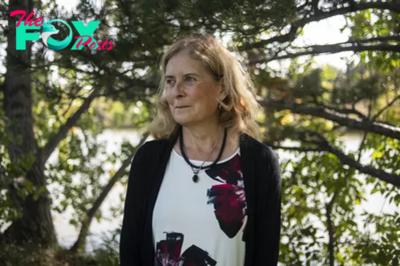Education
Colorado governor proposes adding medical college, expanding health care programs at four schools amid worker shortage

Gov. Jared Polis and a bipartisan group of Colorado lawmakers are proposing to dramatically expand health care education programs at higher education institutions across the state to combat persistent workforce shortages in health care fields, including by creating a new medical college at the University of Northern Colorado that would graduate about 150 medical professionals a year.
Polis joined lawmakers and leaders from higher education schools Monday afternoon at Denver’s Auraria campus to announce a proposal to spend $247 million to expand opportunities for students wanting to pursue careers in health care fields with legislation that was introduced later Monday afternoon.
Along with a new medical college at UNC in Greeley, the state would build on Health care programming at Metro State University in Denver, Colorado State University and Trinidad State College to bolster programming for a variety of Health care professions, including nurses, social workers, mental and behavioral Health experts and veterinarians. The plans for the programs at the four schools have been in the works for the past three years.
“The needs of the health care workforce across our state are really front and center in our minds every day,” Polis told The Colorado Sun. “Especially as Coloradans age, as our demographics change, we’re going to need more health care workers across the board.”
Polis cited the ever-growing need for more health care staffers across the board after the pandemic left many burnt out. Widespread turnover in the health care industry, combined with Colorado’s aging population and escalating health care needs, adds urgency to the task of refilling the state’s pipeline of medical professionals, he said.
The bill aims to create a new Health Institute Tower at MSU Denver, increasing the school’s capacity by 25% and training students in nursing, behavioral health and psychology and other health care fields. The 70,000-square-foot building, expected to cost an estimated $65 million, would cater to students within 10 health departments tied to health and wellness, bringing all of MSU Denver’s health education programs into one space.
The university would build the facility with about $50 million in state funding, with plans to raise the rest through donations and a fundraising campaign, university spokesman Tim Carroll said.

Additionally, the legislation seeks to construct a new $230 million Veterinary Health and Education Center at Colorado State University in Fort Collins, expanding teaching space so that more students can study veterinary medicine and ultimately increasing the number of Colorado veterinarians caring for pets and agricultural livestock. The project at CSU would also include renovation of the James L. Voss Veterinary Teaching Hospital so that the school can offer more veterinary services and give students more hands-on medical experiences.
With the new space at CSU, the university’s veterinary medical school could serve 720 students, up from 600, with the incoming first-year class increasing by 30 students to 168 total, according to information provided by CSU.
The university hopes to secure $50 million in state funding toward construction of the new center.
At Trinidad State College Valley Campus in Alamosa, a nearly $20 million project would include an addition to an existing building as well as a renovation so that the community college can have more room to prepare students to become nurses, EMTs, dental assistants and medical assistants, according to Colorado Community College System spokesperson Fiona Lytle.
☀️ READ MORE
Colorado Democrats advance bills to protect transgender people’s use of a chosen name
Colorado construction workers, pressured by longer, harder hours, die by suicide twice as often as other professions
Colorado’s medical aid-in-dying residency requirement won’t be lifted
All four initiatives point toward a shared mission: expanding Colorado’s capacity to train its future workforce of medical professionals at a time shortages have overwhelmed facilities across the state, particularly coming out of the height of the pandemic.
The numbers behind the deficit of health care workers are staggering. For example, Colorado will need an estimated 10,000 new nurses over the next decade.
“We need more nurses, (emergency medical technicians), doctors, veterinarians across the state in rural Colorado, in the Denver metropolitan area, in northern Colorado,” Polis told The Colorado Sun. “And so these projects all work towards the same goal, which is meeting the needs we have to keep Coloradans and our animals healthy.”
The plan spelled out in the bill is designed to renew certificates of participation to fund construction of medical facilities at all four higher education institutions. Certificates of participation are one financial tool the state uses to pay for construction projects.
Investing in the state’s health care workforce and easing education costs in health fields has been an ongoing priority for Polis and lawmakers, who in 2022 used $26 million in federal COVID stimulus funding to create a program that provided free schooling for students pursuing careers as certified nursing assistants, emergency medical technicians, pharmacy technicians, phlebotomy technicians, medical assistants or dental assistants.
Prioritizing rural pockets of Colorado
The medical college proposed for UNC would be in a new building — which would be known as UNC’s College of Osteopathic Medicine — would expand Colorado’s medical schools to three and train physicians to tend to patients’ whole bodies. The college would be the first public osteopathic medical college in Colorado, according to UNC President Andy Feinstein.
Many doctors who study osteopathic medicine end up working in primary care, according to a news release from Gov. Polis’ office.
Feinstein told The Colorado Sun that the new medical college could educate 600 students.
-

 Education3h ago
Education3h agoReal equity in math education is about more than good grades and test scores
-

 Education2d ago
Education2d agoGood feedback is an art – here’s how I teach it
-
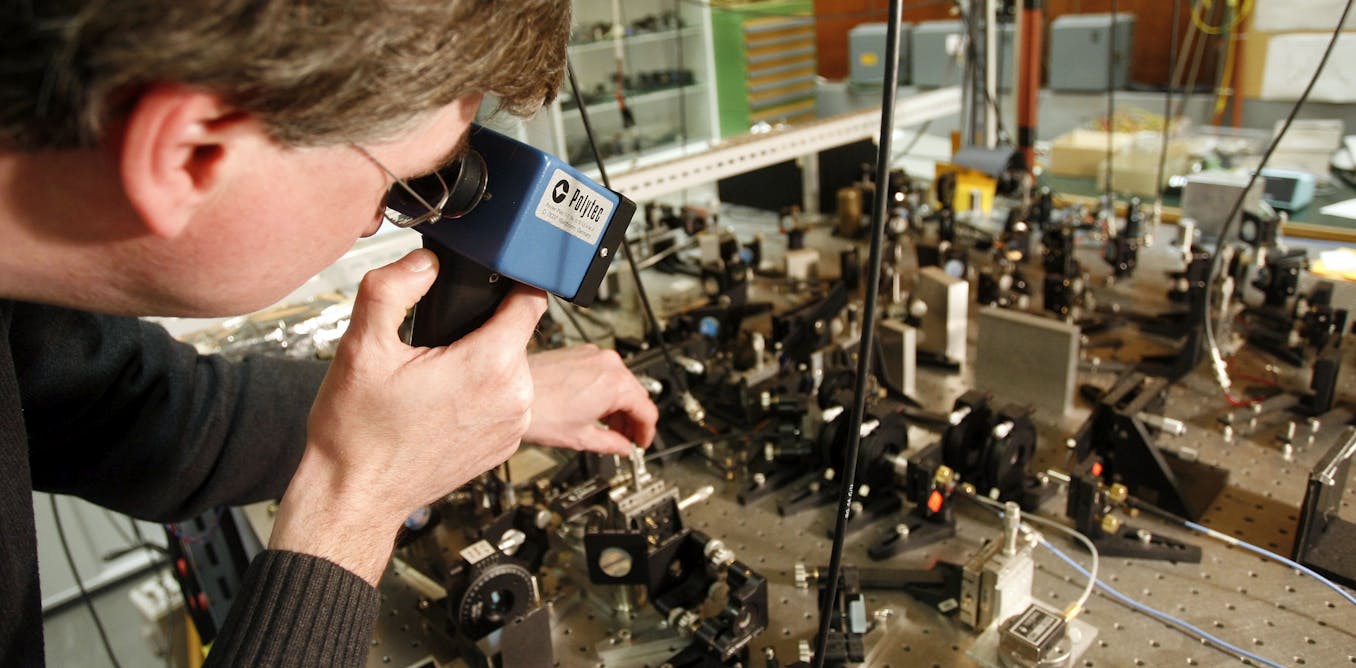
 Education2d ago
Education2d agoUnequal access to quantum information education may limit progress in this emerging field − now is the time to improve
-
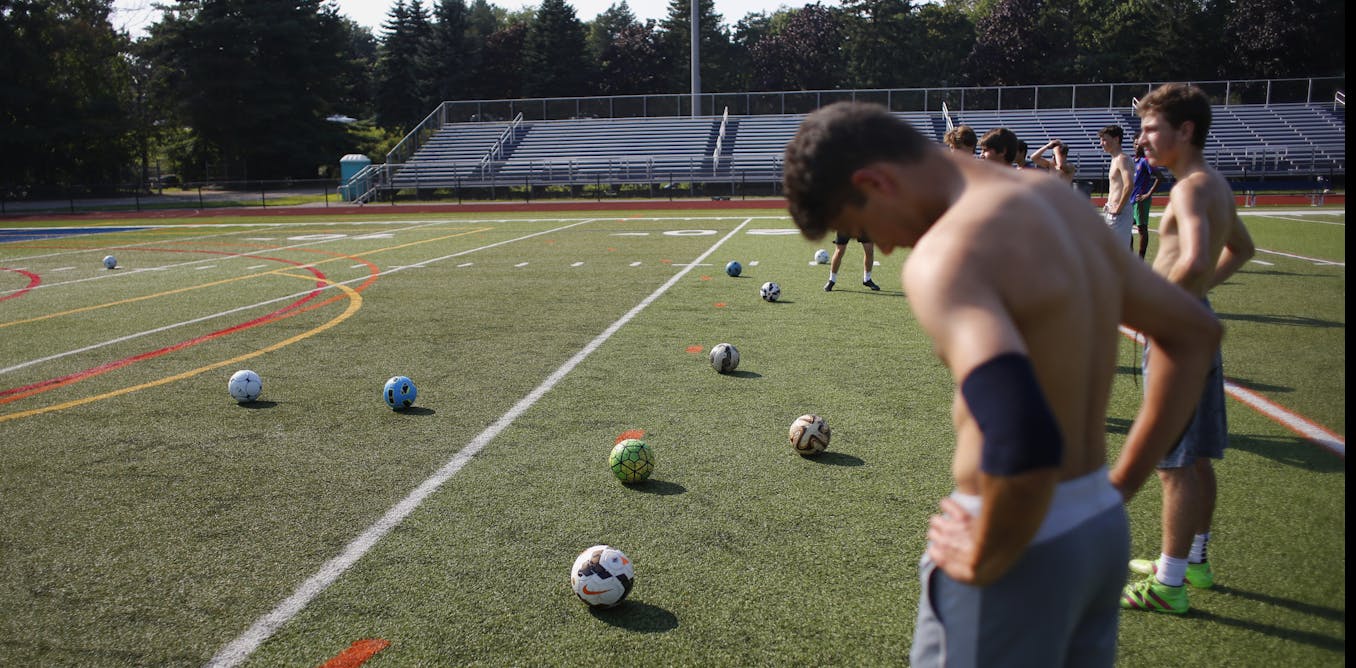
 Education2d ago
Education2d agoSports in extreme heat: Warning signs of heat illness and how high school athletes can safely prepare for the start of team practices
-

 Education2d ago
Education2d agoCOVID-19 devastated teacher morale − and it hasn’t recovered
-

 Education6d ago
Education6d agoSports in extreme heat: How high school athletes can safely prepare for the start of practice, and the warning signs of heat illness
-

 Education6d ago
Education6d agoWhy I turned the ‘Red Dead Redemption II’ video game into a history class on America’s violent past
-

 Education1w ago
Education1w agoAfter more than 40 years, the federal right to free education for immigrant students finds itself in the crosshairs of conservatives




